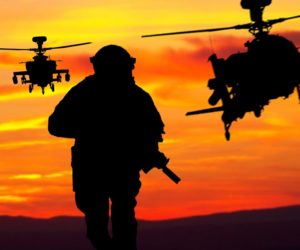
Sorry, your browser is not compatible with this application. Please use the latest version of Google Chrome, Mozilla Firefox, Microsoft Edge or Safari.
Defense content

Special Operations Forces Reference Manual
Special operations encompass the use of small units in direct or indirect military actions focused on strategic or operational objectives. These actions require units with combinations of specialized personnel, equipment,…
Learn More


Mission First DoD & National Security Podcast...
VMware and Carahsoft bring you the latest in national security and defense tech news, challenges, and buzzing topics from thought leaders in the industry. Read our Mission First podcast digest…
Learn More


